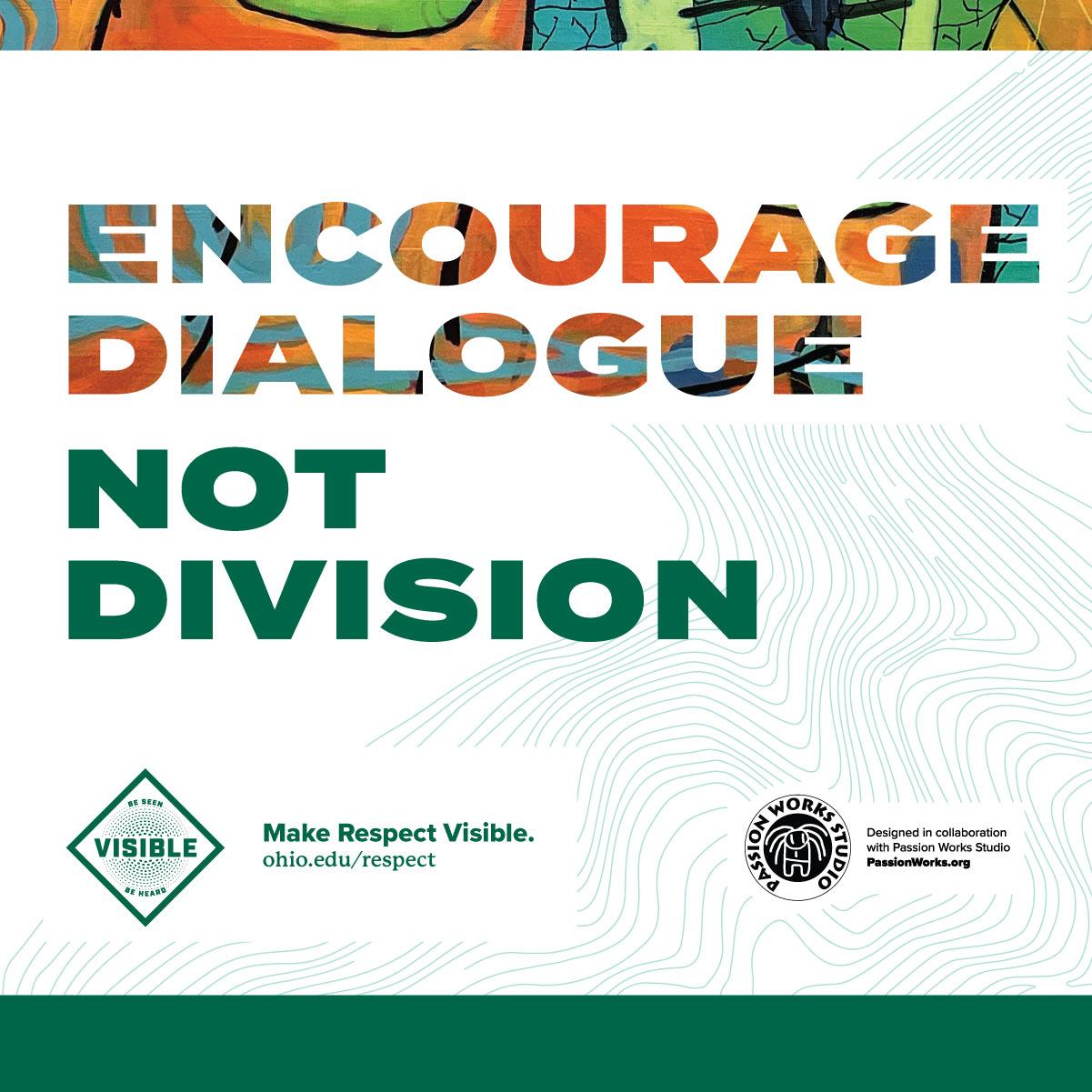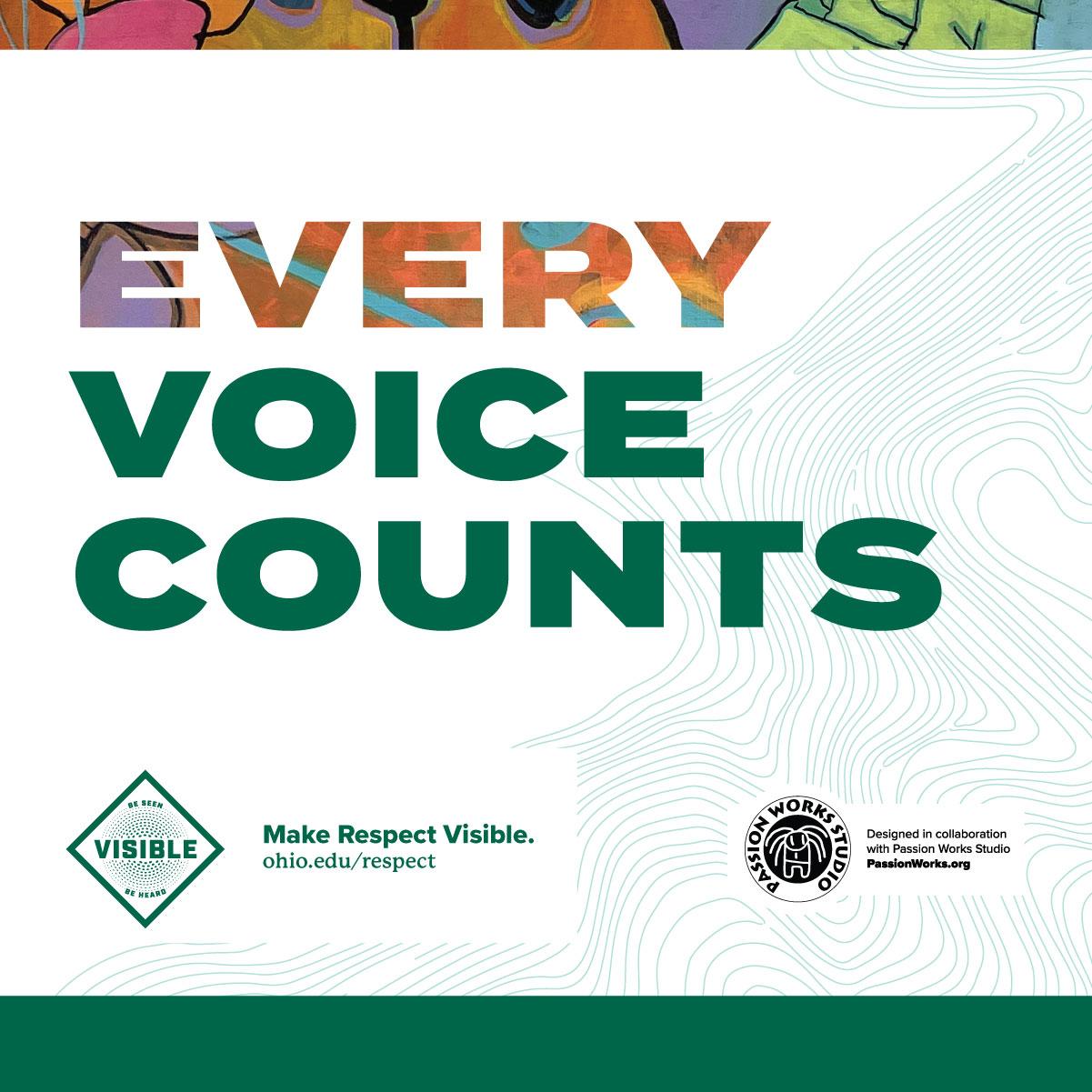Established in 1998, Passion Works Studio is a collaborative community art studio. It remains a trailblazer in the Athens, Ohio community where people investigate their own talents and interests while participating in community-based programming and creative employment opportunities. Since its inception, the studio has partnered with OHIO faculty and students to offer experiential learning opportunities.
Design elements from the studio have been integrated in initiative messages now appearing around the OHIO campus and local Athens community.





